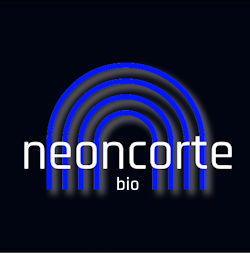Accelerate cancer drug development and overcome resistance challenges with AI-optimized Topoisomerase II enzyme engineering for therapeutic innovation.
AI-Powered Engineering for Topoisomerase II Optimization
Revolutionizing Topoisomerase II Engineering with AI Precision
Topoisomerase II (EC 5.6.2.2) is a critical enzyme responsible for managing the topological states of DNA during processes such as replication, transcription, and chromosome segregation. It plays a central role in cancer cell proliferation, making it a prime target for anti-cancer drugs. However, traditional enzyme engineering methods often face challenges optimizing Topoisomerase II for improved drug efficacy, reduced resistance, and minimal off-target effects. Our AI-powered enzyme engineering platform accelerates the design and optimization of Topoisomerase II variants, providing precise and efficient solutions to advance cancer therapies.
Topoisomerase II (EC 5.6.2.2) is a critical enzyme responsible for managing the topological states of DNA during processes such as replication, transcription, and chromosome segregation. It plays a central role in cancer cell proliferation, making it a prime target for anti-cancer drugs. However, traditional enzyme engineering methods often face challenges optimizing Topoisomerase II for improved drug efficacy, reduced resistance, and minimal off-target effects. Our AI-powered enzyme engineering platform accelerates the design and optimization of Topoisomerase II variants, providing precise and efficient solutions to advance cancer therapies.

Key Features
Why Choose Our AI-Powered Topoisomerase II Engineering Services?
- AI-Enhanced Drug TargetingOur AI-driven platform designs Topoisomerase II variants that optimize drug binding, improving efficacy and reducing the potential for drug resistance.
- Faster Drug DevelopmentBy leveraging AI, we accelerate the engineering process, enabling quicker discovery and development of Topoisomerase II-based cancer treatments.
- Cost-Effective SolutionsOur AI models streamline the optimization process, reducing the need for extensive trial-and-error experimentation, lowering overall costs for pharmaceutical companies.
- Tailored to Cancer TherapiesSpecializing in optimizing Topoisomerase II for anti-cancer drug development, we deliver customized enzyme variants to enhance the effectiveness of chemotherapeutic agents.
The Challenge: Optimizing Topoisomerase II for Cancer Treatment
Topoisomerase II is essential for cell proliferation and DNA integrity, making it a critical target in cancer treatment. However, developing therapies that target this enzyme presents several challenges:
Overcoming Drug Resistance
Improving Drug Selectivity
Balancing Enzyme Activity
Our Solution:
AI-Driven Topoisomerase II Optimization
Our AI-powered enzyme engineering platform offers cutting-edge solutions for overcoming the limitations of traditional Topoisomerase II engineering. With our system, we:
- Design Topoisomerase II variantsthat enhance drug binding, overcome resistance mechanisms, and improve therapeutic outcomes.
- Predict and simulate enzyme behaviorin cancerous and non-cancerous cells to ensure optimal performance in clinical environments.
- Optimize drug-enzyme interactionsto develop more effective and selective chemotherapeutic agents with fewer side effects.
How it works
Our AI-Driven Topoisomerase II Engineering Process
- Data Collection & Enzyme ModelingWe gather comprehensive data on Topoisomerase II structure, function, and interactions with inhibitors. This data is then fed into our AI platform for advanced modeling and optimization.
- Predictive Design & OptimizationOur AI algorithms predict the effects of mutations and modifications, optimizing Topoisomerase II variants for enhanced drug binding, selectivity, and stability.
- Simulation & ValidationWe simulate enzyme behavior under various physiological conditions to ensure that optimized Topoisomerase II variants deliver superior performance in clinical settings.
- Tailored Solutions for Cancer Drug DevelopmentWhether you’re developing chemotherapeutic agents or exploring the role of Topoisomerase II in other diseases, we provide custom solutions that meet your specific therapeutic needs.
Applications of AI-Optimized Topoisomerase II:
- Cancer Therapy DevelopmentUse AI-enhanced Topoisomerase II variants to create new chemotherapeutic agents that effectively target cancer cells and overcome drug resistance, enhancing the efficacy of drugs like etoposide and doxorubicin.
- Targeted ChemotherapyDesign Topoisomerase II variants that increase selectivity towards cancer cells, reducing harm to healthy cells and minimizing the adverse effects of chemotherapy.
- Overcoming Drug ResistanceUse AI-driven enzyme engineering to address resistance mechanisms in cancer cells, creating Topoisomerase II inhibitors that maintain their effectiveness even in resistant strains.
Why Choose Our AI-Enzyme Engineering
Significant time and cost savings in R&D
Custom-tailored enzyme properties for specific needs
Increased enzyme efficiency and stability
Accelerated path to commercialization
Frequently Asked Questions (FAQs)
Our solutions leverage advanced artificial intelligence and machine learning to design, optimize, and engineer enzymes tailored to your specific applications. Whether you need enhanced catalytic efficiency, improved stability, or novel enzyme functionalities, our platform streamlines the design process, reduces experimental iterations, and accelerates time-to-market.
Our services are ideal for biotechnology and pharmaceutical companies, industrial manufacturers, academic research labs, and any organization involved in enzyme applications. Industries such as biofuels, food processing, personal care, paper and pulp, and environmental management can all benefit from our AI-driven enzyme engineering tools.
Our process begins with your input data—such as enzyme sequences, structural information, and target reaction profiles. Our proprietary AI algorithms generate a library of enzyme variants and use predictive modeling to evaluate their catalytic activity, stability, and specificity. The top-performing candidates are ranked and provided for further experimental validation, significantly reducing the number of lab iterations needed.
Our platform is versatile and can be applied to a wide range of enzymes including hydrolases, oxidoreductases, transferases, and lyases. We focus on both enhancing the performance of existing enzymes and designing entirely new biocatalysts for applications in industrial processes, therapeutics, and research.
Absolutely. We collaborate with you to tailor our AI models and parameters to meet your project’s unique requirements. This includes integrating your proprietary data, adjusting target properties, and aligning the enzyme design with your process conditions to deliver a highly customized solution.
Our software features robust API support and data export options (e.g., CSV, JSON) that enable seamless integration with Laboratory Information Management Systems (LIMS) and other data analytics pipelines. We also offer comprehensive onboarding, training, and technical support to ensure smooth adoption by your team.
Our models are trained on extensive datasets from scientific literature and experimental data. Continuous feedback from laboratory validations helps refine our predictions. Although our AI predictions are highly reliable, we recommend in vitro or in vivo validation to confirm the performance of the engineered enzymes under your specific conditions.
Yes, we provide collaborative support during the validation phase. Our team can assist in designing proof-of-concept studies, advising on experimental protocols, and interpreting validation results to ensure that the engineered enzymes meet your performance criteria.
Our pricing is flexible and depends on the scope, duration, and level of customization required for your project. We offer subscription-based models for ongoing research and project-based pricing for specific campaigns. Please contact us for a personalized consultation and detailed quote.
Our dedicated customer support team is available throughout your journey—from initial consultation and onboarding to ongoing technical support and regular software updates. We offer multiple support channels including email, phone, live chat, and detailed documentation to ensure your success.
Ready to explore AI-powered Topoisomerase II enzyme engineering?
Contact us today to learn how our platform can help you optimize Topoisomerase II for advanced cancer therapies and drug development.
Get in touch with our team
Phone: +1-503-754-3958
Email: contact@neoncorte.com
Email: contact@neoncorte.com
Neoncorte Bio
Where AI Meets Biotechnology
Neoncorte Bio is at the forefront of the convergence between artificial intelligence and enzyme engineering. Our team comprises experts in computational biology, bioinformatics, and machine learning, all driven by a mission to accelerate innovation in enzyme design. By leveraging our advanced AI models, we provide unparalleled solutions that enhance efficiency, reduce costs, and push the boundaries of what's possible in enzyme engineering
Publications
Scientific Publication of Neoncorte Bio Team
- Modification of natural enzymes to introduce new properties and enhance existing ones is a central challenge in bioengineering. This study is focused on the development of Taq polymerase mutants that show enhanced reverse transcriptase (RTase) activity while retaining other desirable properties such as fidelity, 5′-3′ exonuclease activity, effective deoxyuracil incorporation, and tolerance to locked nucleic acid (LNA)-containing substrates.
- The transcriptomic data are being frequently used in the research of biomarker genes of different diseases and biological states. The most common tasks there are the data harmonization and treatment outcome prediction. Both of them can be addressed via the style transfer approach. Either technical factors or any biological details about the samples which we would like to control (gender, biological state, treatment, etc.) can be used as style components.
- List of all Neoncorte Bio publications dedicated to Molecular Biology, Biotechnology, Artificial Intelligence and Artificial Neural Networks, published mostly by Nikolay Russkikh, CEO of Neoncorte Bio
© All Rights Reserved. Neoncorte Bio. 2024-2026
contact@neoncorte.com
contact@neoncorte.com
